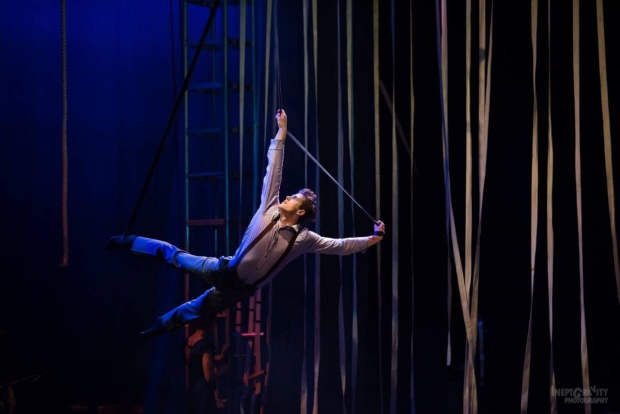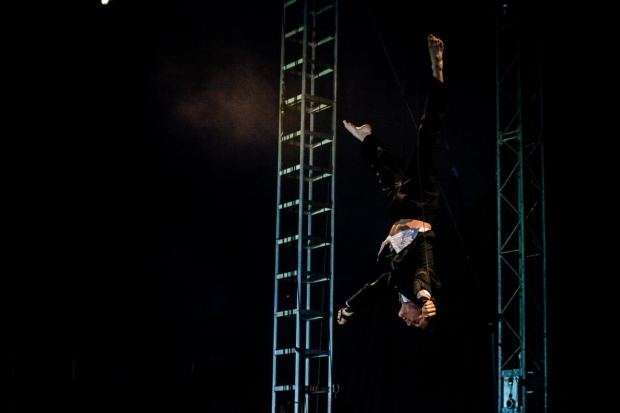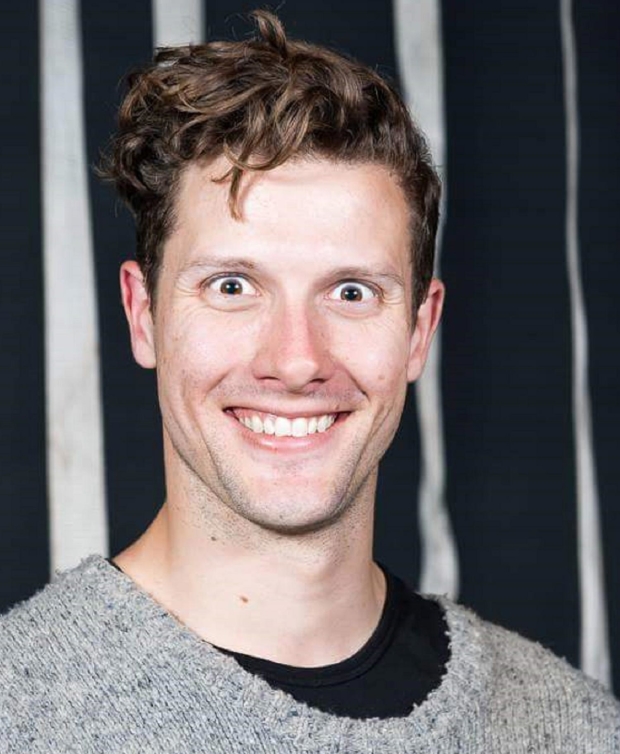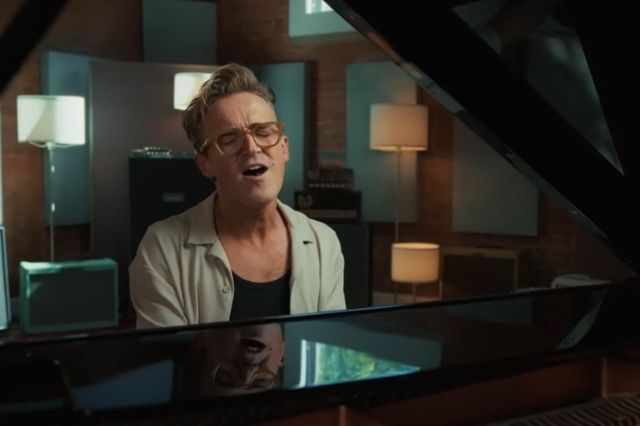250 years of circus: why straps are the most balletic and stripped back of aerial disciplines
Straps aerial artist Eric McGill explains the history of the discipline and why it’s harder to work as a male aerial artist

© Mark Robson 2017
This year marks 250 years since the start of modern circus. It was in 1768 that Philip Astley began his circus entertainment in Waterloo in London. To celebrate, here's the latest in our new series of pieces from circus performers explaining a little about the history of their discipline. Here's Pirates of the Carabina's Eric McGill on straps.
I do straps because it's just me and the air up there. It's the most stripped back of aerial disciplines. The straps are two thin bands that you can barely see, so the act becomes much more about an elegant body in motion rather than a human's interaction with an object.
Straps are a very old discipline, the straps were originally made of leather instead of Nylon like today. The Chinese have been doing their own style of straps for hundreds of years (since about the 16th century). I say style because the Chinese way of performing on straps looks different, much more fast-paced and acrobatic than you'll see me do it. My genre of straps comes from the Russian tradition which is only about forty years old and is much more balletic with slower more controlled movements, like you might see on men’s gymnastic rings.

I started circus when I was young. I wasn't a fan of any team sports and didn't really have the patience for painting or for music. When I was about seven years-old my parents made me try a trampoline and circus summer camp. We put on a silly show at the end with Cirque du Soleil music and homemade costumes, but I came back every year for ten years after that and started doing trampoline competitively until I was one level under Olympic. My trampoline skill got me into the National Circus School in Montreal, where I immediately abandoned trampoline and turned to aerial.
My palms were always so raw from doing trapeze that I couldn't do chin-ups on a bar
I originally started straps as a way of working without hurting my skin. I was training about ten hours a week on trapeze and the skin on my palms was always so raw that I couldn't do chin ups on a bar. I would do a few sets and maybe fool around doing other shapes I knew from trapeze, and then quickly come down and go back to where I belonged. Gradually I became more experimental and I started trying other more straps-specific things. Some would work, some wouldn't but the list of things I could do on straps was slowly growing and I had people coming up and giving me little hints on how to better place my shoulders and other things that weren't placed right. The studio where I was training in Montreal was mainly focused on trapeze and aerial straps, I always thought straps had a level of prestige to it, like it was king of the aerial disciplines.
There's a real stigma over male aerialists

© Mark Robson 2017
I had a difficult time finding work as a male aerialist. There's a real stigma there that's hard to fight against. When non-circus people think of aerialists they tend to think of beautiful girls finding different ways to do the splits. Straps don't seem to have the same stigma and seem to stand alone as a man's aerial discipline, which is equally ridiculous, because there are many brilliant strap artists of all genders.
That's one thing I think we get right in our show Relentless Unstoppable Human Machine (RUHM). Women lift just as much as they are lifted and the men are romantic and diverse. We're split just about 50/50 between those two genders with all of us bringing something different and new and exciting to the stage. Come and check us out at this year’s CircusFest!
Pirates of the Carabina’s Relentless Unstoppable Human Machine will run at the Roundhouse from 3 to 15 April as part of CircusFest 2018.

















